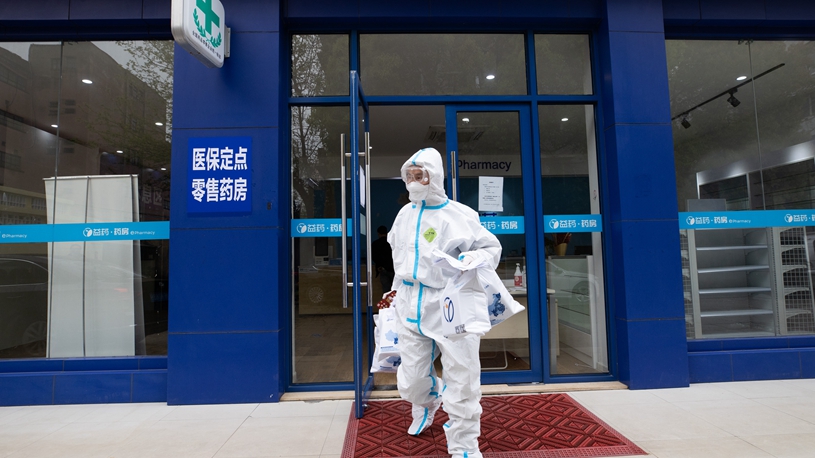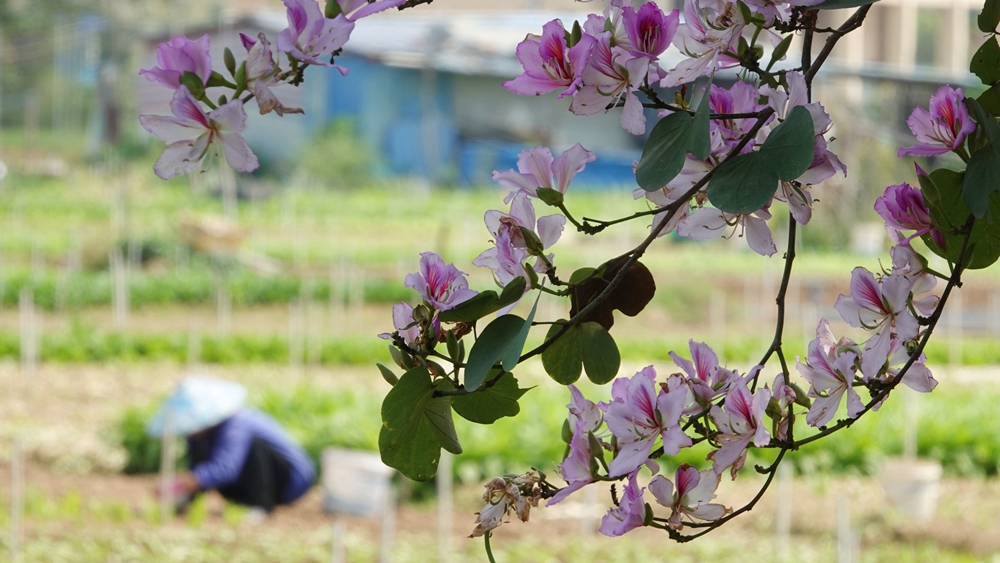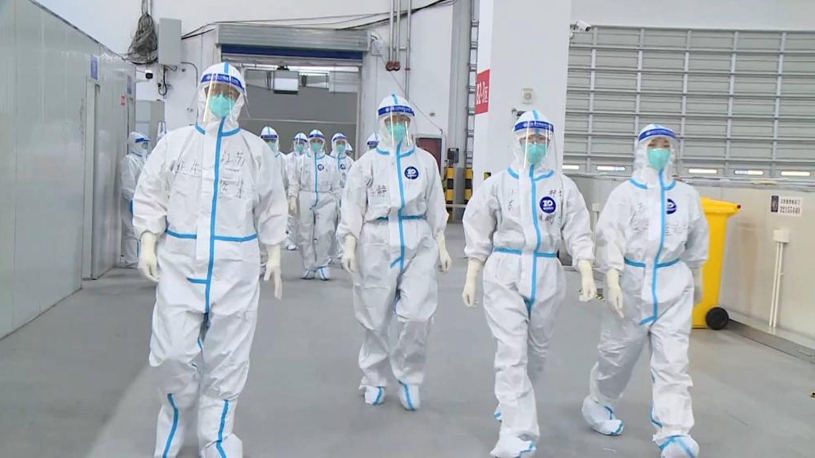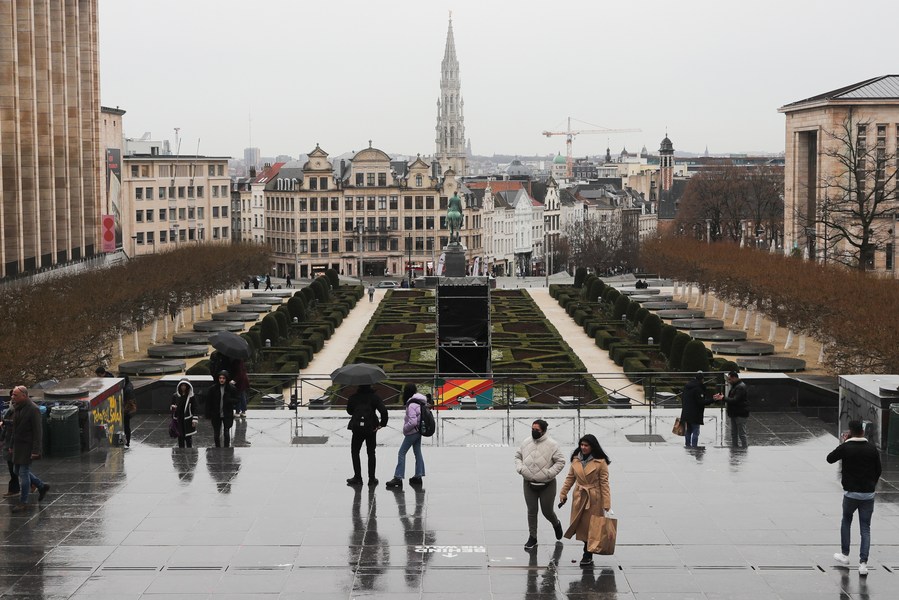
People visit the Mont des Arts in Brussels, Belgium, on Dec. 27, 2021. (Xinhua/Zheng Huansong)
Despite the falling numbers, WHO Regional Office for Europe has cautioned that the current high level of transmission is putting strain on testing capacity and surveillance systems in many countries, meaning the number of cases reported may be underestimated or delayed.
GENEVA, April 9 (Xinhua) -- Although the numbers of new weekly cases and deaths of COVID-19 continue to decrease in Europe since the end of March, the current high level of transmission is putting strain on testing capacity and surveillance systems in many countries and caution is still needed, according to the World Health Organization (WHO).
As per WHO's COVID-19 Weekly Epidemiological Update, after the increase in cases observed in the European Region during the first half of March 2022, new weekly cases have decreased for the second consecutive week as of April 3, or 16 percent as compared to the previous week, with over 4.6 million new cases reported.
Meanwhile, the number of new deaths has also continued to fall in Europe, with over 10,000 new deaths reported weekly as of April 3, or a 15 percent decrease as compared to the previous week.
Despite the falling numbers, WHO Regional Office for Europe has cautioned that the current high level of transmission is putting strain on testing capacity and surveillance systems in many countries, meaning the number of cases reported may be underestimated or delayed. It has warned that rapidly changing testing strategies will further impact reported case numbers and test positivity, so these indicators should be interpreted with caution.

People wearing face masks are seen outside the German Historical Museum in Berlin, Germany, on Feb. 18, 2022. (Photo by Stefan Zeitz/Xinhua)
As for specific countries, Germany's Health Minister Karl Lauterbach tweeted on Saturday that despite the decline in infection figures, "everyone should get tested, or self-tested, before an Easter trip."
A day after the rejection by the Bundestag (lower house of Germany's Parliament) of mandatory vaccination for adults aged 60 years and older in the country, Lauterbach said on Friday this meant "people are not optimally prepared for an expected autumn outbreak wave." He said given the remaining vaccination gap, it would "not be possible to go into autumn without making masks compulsory."
Saturday marked one month since Romania lifted all anti-epidemic precautionary measures. However, some local health experts and officials have expressed reservations and called on people to continue wearing masks, emphasizing that wearing masks is still one of the most effective measures prior to the end of the pandemic.
In Portugal, health authorities said on Friday that the transmissibility of coronavirus in the country remains "very high," with an incidence of 602 cases per 100,000 inhabitants. And the mortality from COVID-19 has maintained an "increasing trend" since the second half of March.
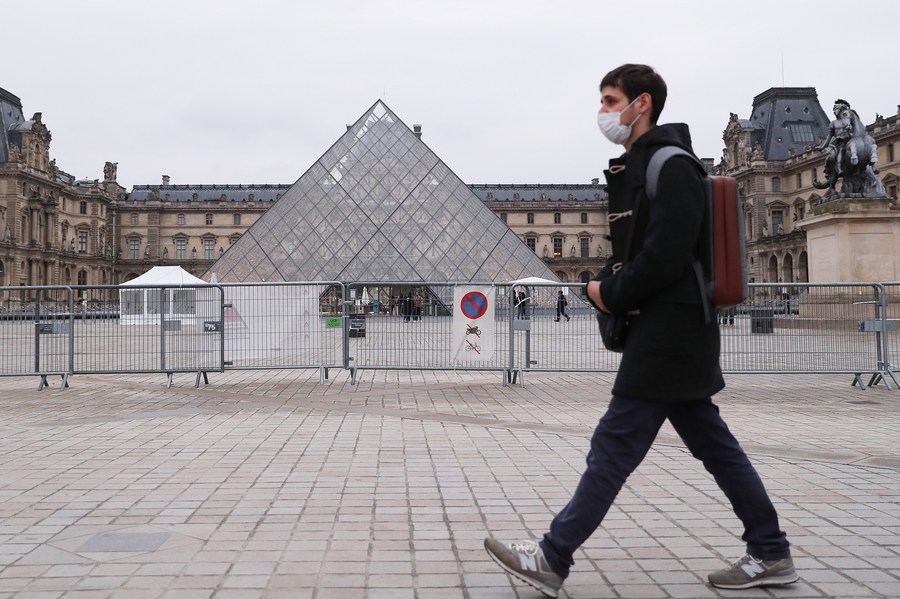
A man walks past the pyramid of Louvre Museum in Paris, France, Jan. 19, 2022. (Xinhua/Gao Jing)
France's Health Minister Olivier Veran has said that the country is planning to offer a fourth vaccination shot to people over 60 years old who have already received their booster dose amid a surge in COVID-19 cases.
In Finland, the country's Ministry of Social Affairs and Health said earlier this week that there are still no signs of the pandemic abating in the country, as the total number of patients in specialized healthcare and primary healthcare remains high since the turn of 2021-2022.
In the Netherlands, although almost all COVID-19 measures have been lifted in late February, health workers are still worried about the strained healthcare resources and the virus' potential threats, in particular to the vulnerable people.
And in Croatia, where almost all epidemiological measures are being phased out beginning Saturday, Prime Minister Andrej Plenkovic has stated that caution is still required.
"We certainly need to be careful though, COVID-19 is still there and unfortunately we still have people dying from the disease," he said. ■


